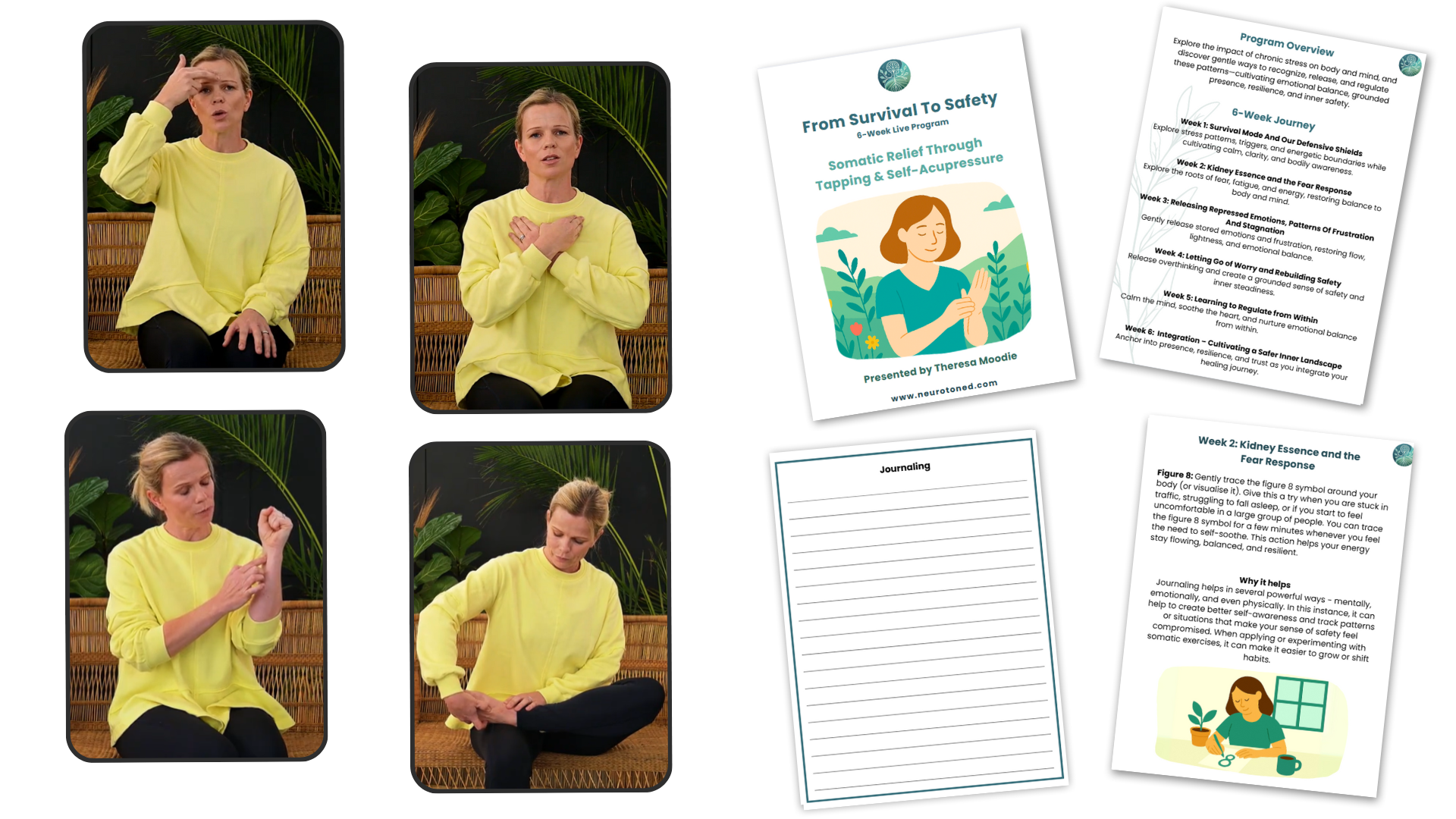
Hydration Habits For Steadier Nerves
If your body feels tense, wired, or easily overwhelmed, you are not doing anything wrong. Stress pulls water out of your system faster than you think. It shows up as dry mouth, racing thoughts, shallow breathing, or feeling strangely brittle inside. Hydration is not just physical care. It is nervous system care.
If you want to understand the pattern your stress is following, you can take the Stress Loop Quiz now.
You deserve habits that feel soft and realistic, not punishing.
Featured Snippet Style Answer
Hydration helps steady your nerves by supporting clearer brain signaling, smoother digestion, and more balanced circulation. Stress burns through fluids quickly, which can make you feel jumpy, foggy, or overstimulated. Many people find that small, frequent sips work better than large amounts at once. Adding minerals and pairing hydration with tiny regulation breaks may help your system feel safer and more grounded. Warm or cool water can offer different support depending on whether your body feels wired or numb.
Why Stress Quietly Dehydrates You
When your sympathetic system stays active, your body works harder than you realize.
Muscles tighten.
Breath rises into your chest.
Digestion slows.
Your brain uses more electrolytes to stay alert.
It is the same subtle overwhelm described in Why do I always feel ready to jump out of my skin for no reason?
Hydration becomes harder to track, because dysregulation changes your thirst cues.
This is also why panic can escalate quickly, as explained here: What Are Panic Attacks? Why Do They Happen?
Small, steady hydration is easier for your body to receive.
If your symptoms sometimes mix physical pain with emotional tension, this piece on The Connection Between Psychological and Physical Pain might help you understand why.
Gentle Hydration Habits That Support Your Nerves
1. One Sip Before Screens
Before checking messages, take one sip of water. That’s it.
Not a routine, just a softer entry into the day.
It pairs well with the quiet somatic practices in 5 Simple Somatic Exercises to Feel Safe Again.
2. The Half-Cup Rule
Half a cup feels approachable.
Even on overwhelmed days.
Instead of aiming for bottles, aim for frequent tiny amounts.
This mirrors the small-steps concept from Titration vs Pushing Through.
3. Add Minerals or Gentle Electrolytes
Stress burns through sodium, potassium, and magnesium faster.
A pinch of mineral salt, lemon, or a mild electrolyte mix can help your system absorb water more effectively.
If your stomach tenses when anxious, this may relate to the gut-brain loop described in The Gut-Brain Connection and Trauma, Simply Explained.
4. Pair Sips With Regulation Microbreaks
Try this every few hours:
- Sip
- Drop your shoulders
- Exhale slowly
- Let your belly soften
If you work remotely, you can blend this with Nervous System Microbreaks for Remote Workers.
5. Warm Water for a Wired Body
Warm water can soften your throat muscles and support vagal signaling.
It’s especially helpful when your breath feels tight.
It works well alongside the gentle breath practices in Vagus Nerve Breathing for Trauma Recovery.
6. Cool or Textured Water for a Numb Body
When you feel shut down or far away from yourself, cool water or citrus-infused water can add a little sensory spark.
Not forcing presence, just inviting it.
This mirrors the reconnection process in Feeling Your Body Again After Numbness.
If cold water does not work well for you, you may gain more understanding through Cold Exposure for Trauma: When It Helps, When It Hurts.
Wired vs Numb Hydration Needs
When You Feel Wired
Try:
- Warm water
- Herbal tea
- Slow, tiny sips
- Something salty with water
- A long exhale afterward
This supports your system similar to the gentle resets described in A 10-Minute Nervous System Reset for Overwhelm.
When You Feel Numb
Try:
- Cool water
- Ice chips
- Citrus or mint
- A textured cup
- Light touch on the cup surface
This creates gentle pendulation, the same rhythm explained in Pendulation: A Simple Somatic Exercise.
You may find more helpful techniques in How to Come Out of a Freeze Response Gently.
A Simple 7-Day Hydration Plan
Day 1: One sip before screens.
Day 2: Half a cup three times.
Day 3: Add minerals once.
Day 4: Sip and exhale.
Day 5: Warm evening drink.
Day 6: Notice wired vs numb patterns.
Day 7: Choose one habit to keep.
Common Sticking Points
“I forget all day.”
Pair hydration with bathroom visits or meals.
“I get overwhelmed by routines.”
Choose the smallest thing: one sip.
“I can’t feel thirst.”
Many people can’t when stressed.
It often softens when downshifting gently, like in How To Reset Your Nervous System After Trauma.
“Water makes me feel shaky.”
Try sipping slower.
Try warm water.
Try minerals.
If the evening is when your symptoms rise, Nighttime Routine for Insomnia may help.
More Gentle Reads
- Hydration for Nervous System Regulation
- Grounding During Panic Without Talk Therapy
- Butterflies In Your Stomach: Trauma Or Anxiety?
Closing
Hydration is a quiet way of saying, “I’m here with you.”
Your nervous system responds to these small, steady signals.
You don’t need to do a lot. Just gently, consistently tending to yourself.
If you want to understand your stress patterns more clearly, take the free Stress Loop Quiz.
Disclaimer: This article is educational and not medical advice. If you have health concerns, consider speaking with a qualified professional.
FAQs
1. How does hydration help the nervous system?
It supports brain signaling, digestion, and circulation, all of which influence your sense of safety.
2. Why does stress make me dehydrated?
Muscle tension, shallow breathing, and increased alertness burn through fluid and electrolytes faster.
3. Should I use electrolytes?
Many people find small amounts helpful, especially during chronic stress.
4. Why does warm water calm me down?
Warmth helps relax throat and diaphragm muscles and may support vagal signaling.
5. What if I feel numb or shut down?
Cool water or small sensory cues can gently bring awareness back.
6. Is it normal to forget to drink when stressed?
Yes. Thirst cues often fade when the body is in survival mode.
Discover Your Vagal Tone
Find out how dysregulated your nervous system is and get your personalized roadmap to feeling calm, energized, and in control


